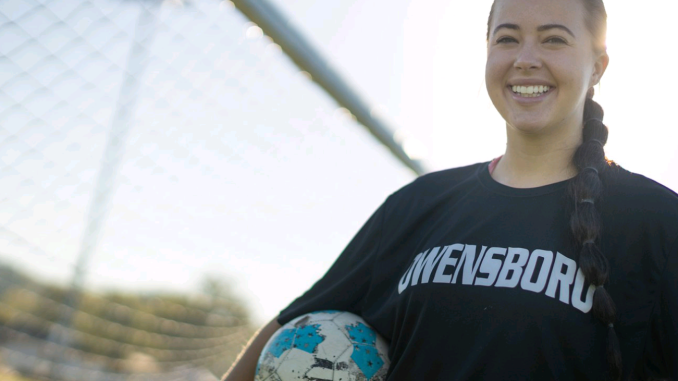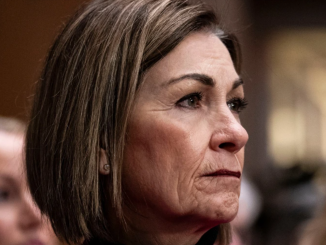
Soon the nation’s highest court may have a chance to weigh in on the pressing issue of fairness in women’s sports.
On March 9, my law firm asked the Supreme Court to reverse a federal appeals court ruling that stopped a state law protecting equal opportunities for female athletes from fully taking effect. Now, for the first time ever, the U.S. Supreme Court has the opportunity to weigh in on the issue of fairness in women’s sports — a subject that has dominated headlines for several years.
But despite the public debate, this case never would have made it this far without the work of brave high school girls who have been willing to stand up for themselves, other women, and the future of women’s sports.
Girls like Chelsea Mitchell in Connecticut were among the first to courageously stick out their necks on a politically charged issue and tell their stories. Mitchell was just 15 years old when she lined up at the starting blocks between two bigger, faster, and stronger male athletes. She has often spoken of how demoralizing it felt to give her very best knowing that she would likely come in second or third place — because she’s a girl.
But the adults in the room failed her. Particularly the adults at the Connecticut Interscholastic Athletic Conference, who enacted a policy that forced Mitchell to compete against male runners who identified as female. As a result, Mitchell — “the fastest girl in Connecticut” — lost four championship titles to boys over the course of her high school career. Meanwhile, those two male athletes took home 15 track titles that previously belonged to nine different girls.
Recognizing the blatant unfairness exposed in stories like that, states began to pass legislation requiring male athletes to compete on teams consistent with their sex so that female athletes have a fighting chance. One of the 18 states to do so was West Virginia. But shortly after the state enacted the Women’s Sports Act, the ACLU challenged West Virginia’s law on behalf of a male athlete wanting to compete on a girls’ team.
In 2021, Alliance Defending Freedom joined the lawsuit, B.P.J. v. West Virginia State Board of Education, bringing along Lainey Armistead, a female soccer player at West Virginia State University, to help defend the state’s law protecting women like herself.
Two months ago, a federal district court upheld West Virginia’s commonsense law, the first federal court to affirm a state’s women’s sports law. But that didn’t stop the ACLU from continuing its legal battle, asking the U.S. Court of Appeals for the Fourth Circuit for an injunction to allow the male athlete to try out for spring track on a girls’ team. Days later, the Fourth Circuit granted the injunction without providing any legal or factual basis for its decision — stating in just four lines that the injunction was granted.
The integrity of women’s sports deserves more than that, so we asked the Supreme Court to vacate the Fourth Circuit’s unreasoned injunction and allow West Virginia to enforce its law protecting female athletes.
First, the Fourth Circuit’s order spurns West Virginia voters who deserve to have their laws enforced and not blocked without any explanation. Second, the “Save Women’s Sports” law is consistent with both the U.S. Constitution and Title IX, a federal law designed to protect fair competition and athletic opportunities for women. Third, it’s crucial that states enact laws like West Virginia’s and defend them in the absence of leadership on the issue of women’s equality in sports from other government entities, athletic associations, and sports’ governing bodies.
The wrongs done to women aren’t limited to Mitchell. In Idaho, two collegiate female track athletes lost multiple races to males competing on their team. Lia Thomas made a national splash as a male swimmer who set two women’s records and became an NCAA champion — beating two female Olympic champions in the same race. And males are displacing other female athletes from Hawaii to Vermont. Meanwhile, the ACLU is telling us it doesn’t matter — that “progress” demands these women stay silent and accept losing their opportunities. We know better.
Sports makes obvious the inherent biological differences between the sexes. When society and the law try to ignore biological reality, real people get hurt. In sports, it’s women and girls who pay the price. Requiring males to compete on teams consistent with their sex is legal, logical, and long-standing — not to mention fair and safe for girls and women performing at all levels in increasingly competitive arenas.
Just last year, we celebrated 50 years of equal-rights protections under Title IX. In the spirit of that legislation, West Virginia and 17 other states have enacted women’s sports laws. Sixteen more have introduced such legislation. These states deserve to be commended — and when challenged, defended — for helping ensure that women and girls don’t just have the right to merely participate in sports, but also to win.
* Article From: National Review


